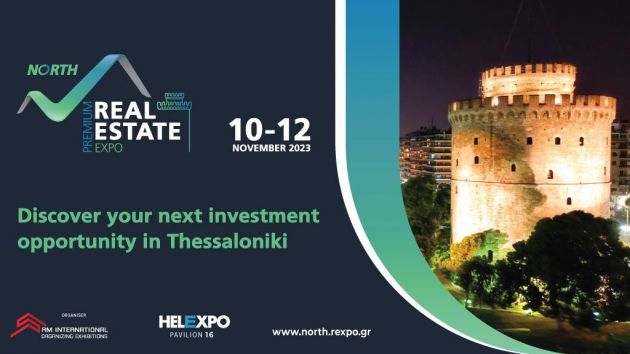How ESG Due Diligence Drives Investment: A PlanRadar Report
 Friday, 13.10.2023.
Friday, 13.10.2023.
 10:50
10:50

A new report explores how ESG is helping investors maximize returns on their real estate investments
PlanRadar, the leading digital platform for construction, real estate and facility management, has released its latest e-book, ESG in the Real Estate Industry. It primarily explores how ESG strategies help attract investment in the construction industry across Europe, as well as the role of digital tools in securing future funding.
From the outset, the report emphasizes that ESG practices are not just about meeting regulatory guidelines, but delivering significant business benefits. This could explain why 52% of private investors apply ESG as a strategy to increase the value of their assets, and half implement an investment policy that includes ESG specifically. [1]
The report draws on existing research from leading consultancies, including Deloitte. It emphasizes that due to the ESG due diligence process, construction companies involved in low-carbon construction and green real estate development attractive to investors. According to recent estimates, the value of global ESG assets is over $23 trillion. [2]
One of the most important conclusions of the report is that real estate owners focused on achieving ESG goals often have a higher return on investment (ROI), and further suggests that the faster sustainability goals are achieved, the faster the return on investment. Thus, increasing emphasis is placed on the integration of ESG strategies in the technical due diligence analysis of real estate in order to achieve better results, including understanding the current condition of the building and potential repair costs and compliance with building regulations.
However, the report also states that this goal is not achieved overnight, as the integration process can be time-consuming because it depends on independent experts who evaluate data, compile reports and align goals. It also involves a large upfront cost, with evidence-based data showing proper adherence to processes and regulations for safe and habitable buildings. Collecting and reporting ESG data is demanding considering the range of standards and regulations that are constantly emerging, along with maintaining quality records of project documentation, contracts, blueprints and protocols in fragmented project supply chains.
Commenting on the report, PlanRadar`s Regional Director for Southeastern Europe, Antonio Radovcic, said:
- ESG becomes a key driver of investments with investment memoranda covering all ESG risks, mitigation strategies, associated costs and assumptions identified during the due diligence process. Those in the real estate, who take this corporate criterion seriously and consider the potential of digital tools for more efficient document management, will improve governance, increase social value and reduce negative environmental impact, thereby providing the market with a much-needed boost and protection from economic volatility.

Increase in portfolio value
The document also sheds light on the role that digital platforms can play in facilitating the integration of ESG data into technical due diligence analysis, by accurately collecting relevant information and reporting on it, in order to identify specific structural problems, inconsistencies and risks.
Investors with commercial real estate portfolios often develop effective strategies to increase property value and energy efficiency by streamlining maintenance costs. According to the research, the latest software enables a quick estimate of the cost of reconstruction and remodeling of buildings, which helps investors make informed decisions. For real estate, detailed technical data recording means that the efficiency of processes such as due diligence is greatly increased.
Antonio Radovcic adds:
- While ESG taxonomy and regulations are still in development, companies that implement effective ESG monitoring strategies now will open the door to greater returns on investment in the future. Comprehensive property documentation as part of technical due diligence analysis requires a lot of time. Digital solutions make this process much more efficient and help ensure long-term asset value, tenant satisfaction and overall company value enhancement. They also provide a tamper-proof audit trail that supports compliance with increasingly stringent building codes, providing additional security to stakeholders.
More insights from the PlanRadar e-book, "ESG in the Real Estate Industry with PlanRadar," are available here.
PlanRadar is an award-winning digital SaaS field management platform for documentation, task management and project communication in construction and property management. The platform currently operates in over 75 markets worldwide. PlanRadar digitizes everyday processes and communication in construction and real estate management. The platform connects all project stakeholders and provides access to critical data in real time, enabling teams to improve quality, reduce costs and deliver work faster. It`s easy to use and provides value to everyone in the building lifecycle, from contractors and engineers to property managers and owners, with flexible capabilities for different companies and processes. Over 120,000 professionals already use PlanRadar to track, connect and solve problems on and off the construction site. PlanRadar is currently available in 20 languages and can be used across iOS, Windows and Android devices. Headquartered in Vienna, Austria, PlanRadar has 16 offices worldwide.
Kontakt: [email protected]
Website: www.planradar.com

Click here to see the entire Special Edition Newsletter
"REAL ESTATE AND CONSTRUCTION - From vision to investments"


 Izdanje Srbija
Izdanje Srbija Serbische Ausgabe
Serbische Ausgabe Izdanje BiH
Izdanje BiH Izdanje Crna Gora
Izdanje Crna Gora


 News
News
















